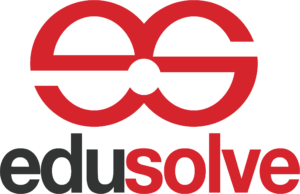What is Adult SEL?
As practitioners and facilitators of learning, it would be almost impossible to instruct a lesson on a subject one is unfamiliar with. Whether the subject is considered core curriculum (Math, Science, Language Arts, etc.) or supplemental (physical education, performing arts, etc.) the adult facilitating instruction must have at least a foundational understanding of the subject. The same is true for social emotional learning (SEL) (Jennings & Greenberg, 2009; Hamilton & Doss, 2020). When teachers begin with understanding and applying their own social emotional skills, while also deepening their personal practice, they are able to model and reinforce the use of SEL competencies (Schonert-Reichl, 2017; Jennings & Greenberg, 2009). This real-time use and modeling of SEL skills and strategies support not only the teacher’s capacity for social emotional learning, but also reinforces the integration of SEL in a student’s everyday life. (Schonert-Reichl, 2017; Jennings & Greenberg, 2009).
Why is it so important in the workplace?
Let’s face it, we spend at least half of our lives at work. The average worker spends 60 hours + either onsite on the job or thinking about work. The workplace is ripe for supporting mental wellness and shaping our social and emotional skills. According to Surgeon General Dr. Vivek Murthy, The COVID-19 pandemic brought the relationship between work and well-being into clearer focus for many U.S. workers. According to recent surveys:
- 76% of U.S. workers in a 2021 survey reported at least one symptom of a mental health condition (anxiety, depression), an increase of 17 percentage points in just two years.
- 81% of workers reported that they will be looking for workplaces that support mental health in the future.
- 84% of respondents reported at least one workplace factor that had a negative impact on their mental health .
As educators, we need to learn from this guidance by being good to ourselves so we can be great to our students.
What are practical steps I can take now in my school or classroom?
For leaders, try tapping into the Signature Practices:
The SEL 3 Signature Practices are one tool for fostering a supportive environment and promoting SEL. They intentionally and explicitly help build a habit of practices through which students and adults enhance their
SEL skills. While not an SEL curriculum, these practices are one concrete example of a way to help people understand and practice the goals of an overall systemic SEL implementation plan. The linked playbook offers examples and resources to draw from as you build your repertoire of SEL practices. It also offers insights about how to make planning and facilitating the Signature Practices a fluid, natural part of your work. You and your colleagues are each other’s richest data sources, so we encourage you to dialogue regularly about how you consistently build these Signature Practices into your daily work, and to learn from one another!
For teachers, consider how you model your own SEL competencies in the classroom. This video is a great example of a teacher modeling Self-Management in a classroom.
If the goal is to have our students gain the capacity to be self-aware, and manage those emotions, we as adults must model what we expect from them. As teachers, we set an expectation that we must appear all-knowing and infallible. But, in fact, when we don’t allow ourselves the opportunity -in the moment- to identify our feelings and process how we are going to manage those emotions, we miss an opportunity to share our own productive struggles with our students.

